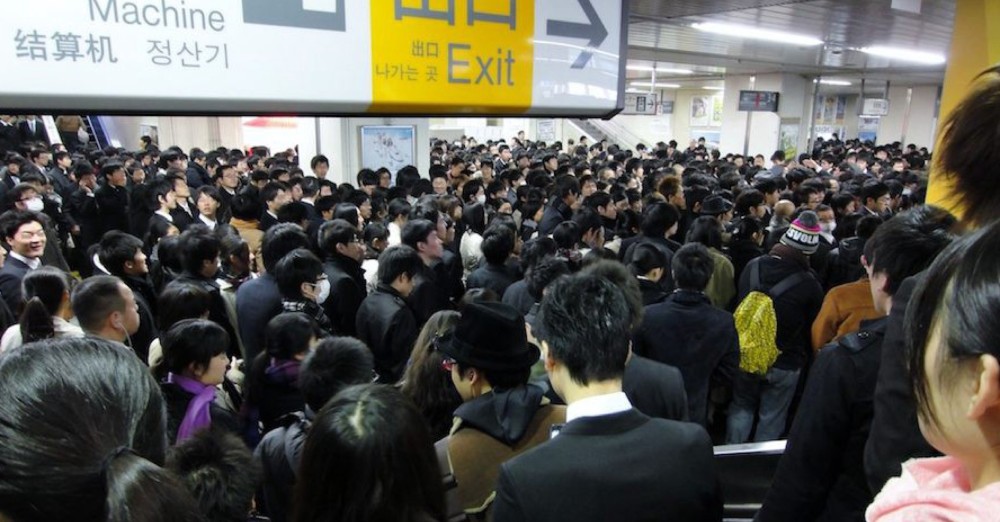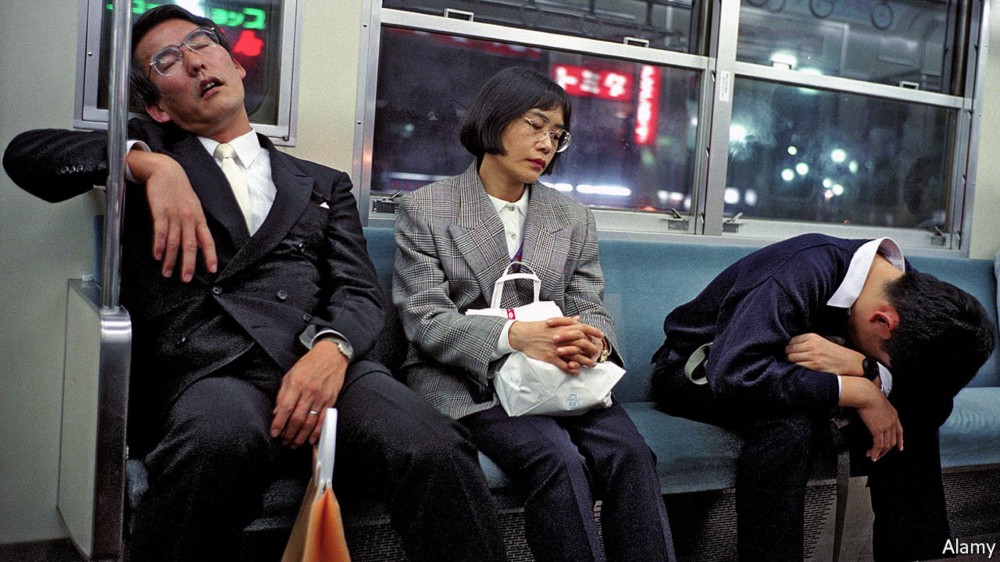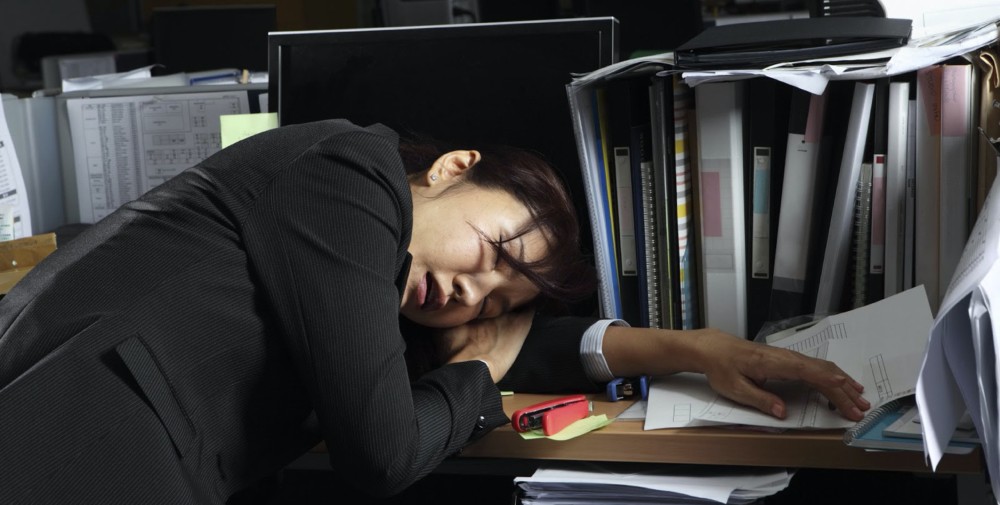'Overwork Death' - An Insight Into Japan's Brutal Working Culture
By Ollie Poole. November 8, 2020
Regardless of how much you enjoy your work, everyone in the working world will agree that it can be very stressful and demanding at times. Desperate to meet (and succeed) company expectations and absorbed in a fierce competition for promotions, employees find themselves working harder and harder to distinguish themselves from the herd – often cutting sleep and pushing themselves to the limit in the process.
Hard work is to be admired, of course. But there's a difference between working hard and working yourself to dangerous levels of exhaustion.
In Japan, people are working themselves to death.

Demoralizing commutes are a very real part of the daily grind in Japan
Japan's working culture is so extreme that the word karoshi (過労死), meaning 'overwork death', is used to classify thousands of people killed every year by its brutal working culture.
The first reported case of karoshi came in 1969 and the fatality statistics continue to make grim reading. In 2019, just under 2000 suicides were attributed to overwork. Regular instances of over 100 hours overtime per month are pushing professionals to the precipice. Some fall to heart failures and strokes, while others opt for suicide.
Two unforgettable overwork deaths
Out of the many thousands each year, two karoshi-related deaths in recent years stand out in particular.- Miwa Sado (31)
In July 2013, a NHK journalist called Miwa Sado was found dead in her apartment still holding her phone. Her heart had given up after registering 159 hours of overtime that month on top of 149 hours in the month before. She had died of congestive heart failure at just 31.
NHK journalist Miwa Sado died of overwork in 2013
Data from her phone revealed that she may have even understated the number of overtime hours worked (not uncommon among workers), meaning she could've worked up to 209 hours overtime in the month she died. Staggeringly, Miwa's death was not made public as an overwork death until 2017. - Matsuri Takahashi (24)
After working 105 hours overtime during a month at Dentsu advertising, Matsuri Takahashi killed herself on Christmas Day 2015. She was just 24. Pushed past the limits of exhaustion – Matsuri's tweets before her death were a cry for help:

Dentsu employee Matsuri Takahashi died at the age of 24
"It's 4am. My body's trembling… I'm physically and mentally shattered."
"I'm going to die. I'm so tired."
Both of these karoshi put Japan's brutal working culture in chilling focus.
Why has it come to this?
An expectation of long working hours is deeply ingrained in Japan. Why? In an attempt to restore the economy after World War II, Prime Minister Shigeru Yoshida asked corporations to offer lifelong job security for in return for loyalty. Desperate for this security and afraid of unemployment, employees gave everything to show their commitment to the job.
Today, Japan suffers from a labour shortage due to rapid population decline since 2011 and many people aging out of the workforce. This puts an enormous weight of responsibility on employees who work under a collectivist ethos that demands each individual pull their weight in an effort to boost the economy and meet the relentless demands of globalisation.
Consequently, midnight trains are crammed full of commuters in a working culture in which overtime is the norm and the number of hours worked is taken as the best indicator of productivity. As a result, 8am to midnight is seen as a regular day. The consequence? Japan is the most sleep-deprived country in the world with an average daily sleep 6hrs 35mins per person.
Inemuri – 'sleeping while present'

People sleeping in public is a very common sight in Japan
In fact, Japan is so tired that sleeping in public is a regular occurrence. Park benches, trains, coffee shops, restaurants, and offices all provide napping spots. The word inemuri – 'sleeping while present' – describes this habit.
Daytime sleeping is even admired (especially at work) as evidence of hard work because it shows that employee has clearly worked themselves to exhaustion.
But there's further reasons behind this sleep-deprivation.
Unused holidays
"None of the others are taking days off – I can't be the only person taking time off," an anonymous Japanese employee revealed to the BBC.
This is a culture where companies and employees have raised the criteria of hard work so high that people are hesitant and afraid to take days off out of guilt. Employees feel pressure not to look weak in a working culture where you are evaluated more favourably if you aren't using your holiday days. In fact, government figures highlighted that only 52.4% of the paid leave available was used in 2018. In some occupations (like restaurants), employees take zero to 2 days off a year – perhaps out of fear of being judged by fellow employees.
What we're seeing is such a deeply ingrained, extreme working culture that workers have no choice but to keep up with the pace – and do this at all costs.
Is there any hope for the future?
In January 2017, the government introduced the 'karoshi line' – drawing the line at 80 hours of overtime a month as the maximum, with an exception of 100 hours during 'busy periods'. This hasn't made a meaningful impact as it's believed that employees play down their overtime hours in order to stay under the line.

Recent government measures have yet to curtail the effects of long working hours
Similarly, 'Premium Friday' was introduced telling employees to leave after 3pm on the last Friday of every month, but this was ignored by employees. Perhaps taking that step away from work is easier said than done. Some companies even tried 'go home' drones that play music to indicate that employees should go home. However, overall, the balance of evidence suggests that Japan's brutal working culture shows little sign of changing.
One can only hope that long-standing cultural reforms can come into place and help to soften the extremity of Japan's culture of work, and save young lives in the process.
Related content


